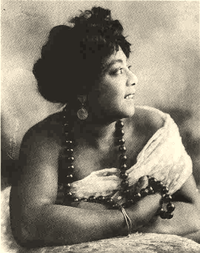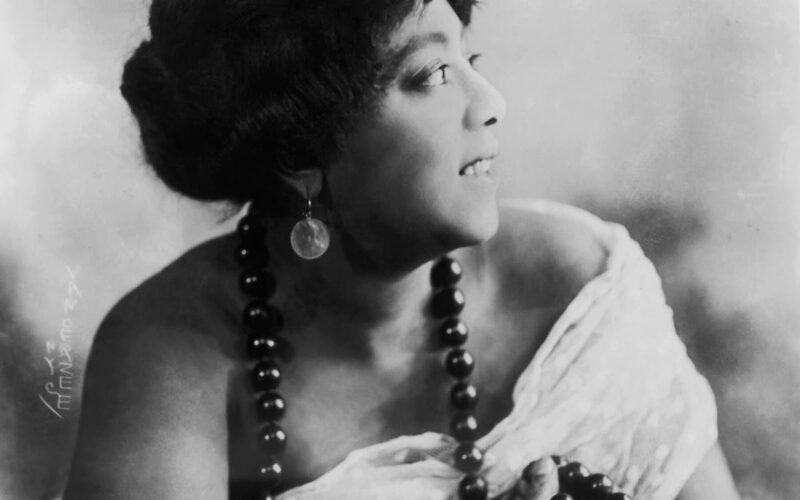Mamie Smith, born on May 26, 1891, in Cincinnati, Ohio, was a groundbreaking American singer, dancer, pianist, and actress. Best remembered for her pioneering work in blues music, she forever changed the music industry and set the stage for future African American artists. Mamie’s career spanned a variety of genres and helped bring blues to the forefront of American popular music in the 1920s.
Early Life and Beginnings
Mamie Robinson Smith grew up in a time of intense racial discrimination and limited opportunities for African American artists. She began her career as a vaudeville performer in the early 1910s, touring with various troupes and gaining attention for her commanding stage presence and powerful voice. As a teenager, Mamie performed in Harlem, New York, a bustling hub of African American culture and music.
“Crazy Blues” – A Historic Breakthrough
In 1920, Mamie Smith made history with her recording of “Crazy Blues,” a song that marked the first blues record ever recorded by an African American artist. Released by Okeh Records, this song was an instant success, selling over 75,000 copies within the first month—a remarkable feat at the time. Her success with “Crazy Blues” shattered barriers and introduced blues music to mainstream America, inspiring a wave of record companies to sign African American artists.
The success of “Crazy Blues” opened doors for Black female vocalists across the United States. Artists such as Bessie Smith and Ma Rainey followed in her footsteps, leading to a golden era of female blues singers in the 1920s. Mamie’s accomplishments helped establish blues as a genre that resonated deeply with audiences and was commercially viable.
A Versatile Performer
Beyond her musical talent, Mamie Smith was a multi-talented artist who expanded her career into acting. She starred in several films, including Jailhouse Blues (1929) and Paradise in Harlem (1939), showcasing her range as an entertainer. Her charismatic performances on screen further solidified her legacy as a versatile and trailblazing artist.
Mamie Smith’s career wasn’t limited to just blues—she also explored jazz and popular music. Throughout the 1920s, she released several hits such as “That Thing Called Love” and “You Can’t Keep a Good Man Down,” demonstrating her wide-ranging musical abilities.
Legacy and Impact
Mamie Smith’s influence on American music is profound. By breaking racial and gender barriers, she paved the way for future generations of Black artists in blues, jazz, and beyond. Her success demonstrated the commercial potential of African American music and led to a growing interest in recording Black artists, sparking a revolution in the music industry. Mamie’s career was instrumental in helping to establish African American women as powerful voices in the music world, breaking stereotypes and gaining widespread respect for her talent and tenacity.
End of Life and Commemoration
Mamie Smith passed away on September 16, 1946, in New York City. Her contributions to music and entertainment remain celebrated today. In 1994, she was posthumously inducted into the Blues Hall of Fame in recognition of her pivotal role in the history of blues music. Mamie’s life and work continue to inspire musicians, historians, and fans worldwide.
Mamie Smith’s Influence on Today’s Music
Mamie Smith’s legacy lives on in modern blues, jazz, R&B, and popular music. Her pioneering spirit and fearless approach to her art have inspired countless artists across generations. She is remembered not only as the first African American woman to record a blues record but as a trailblazer who laid the foundation for diverse voices in American music.


Comments are closed